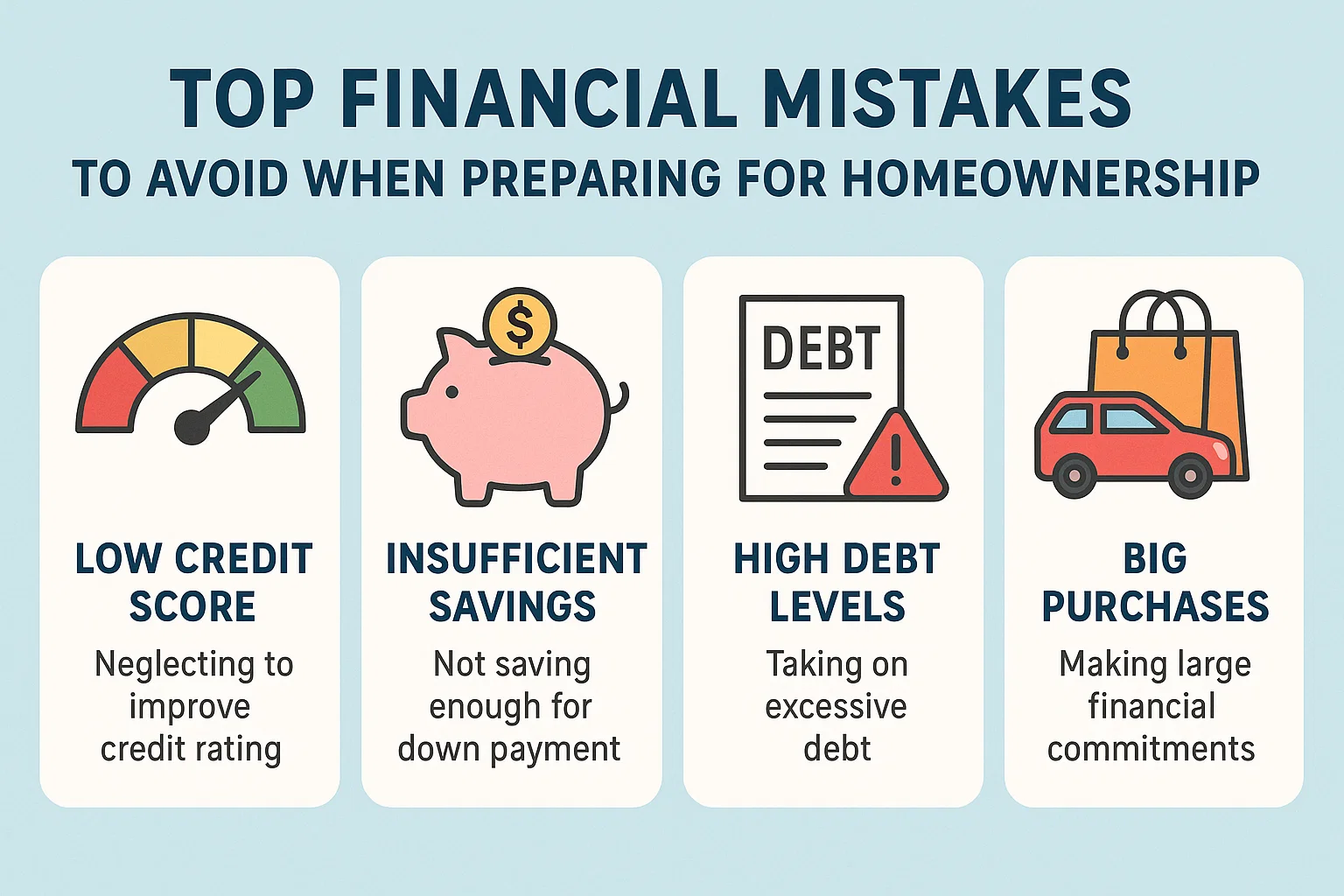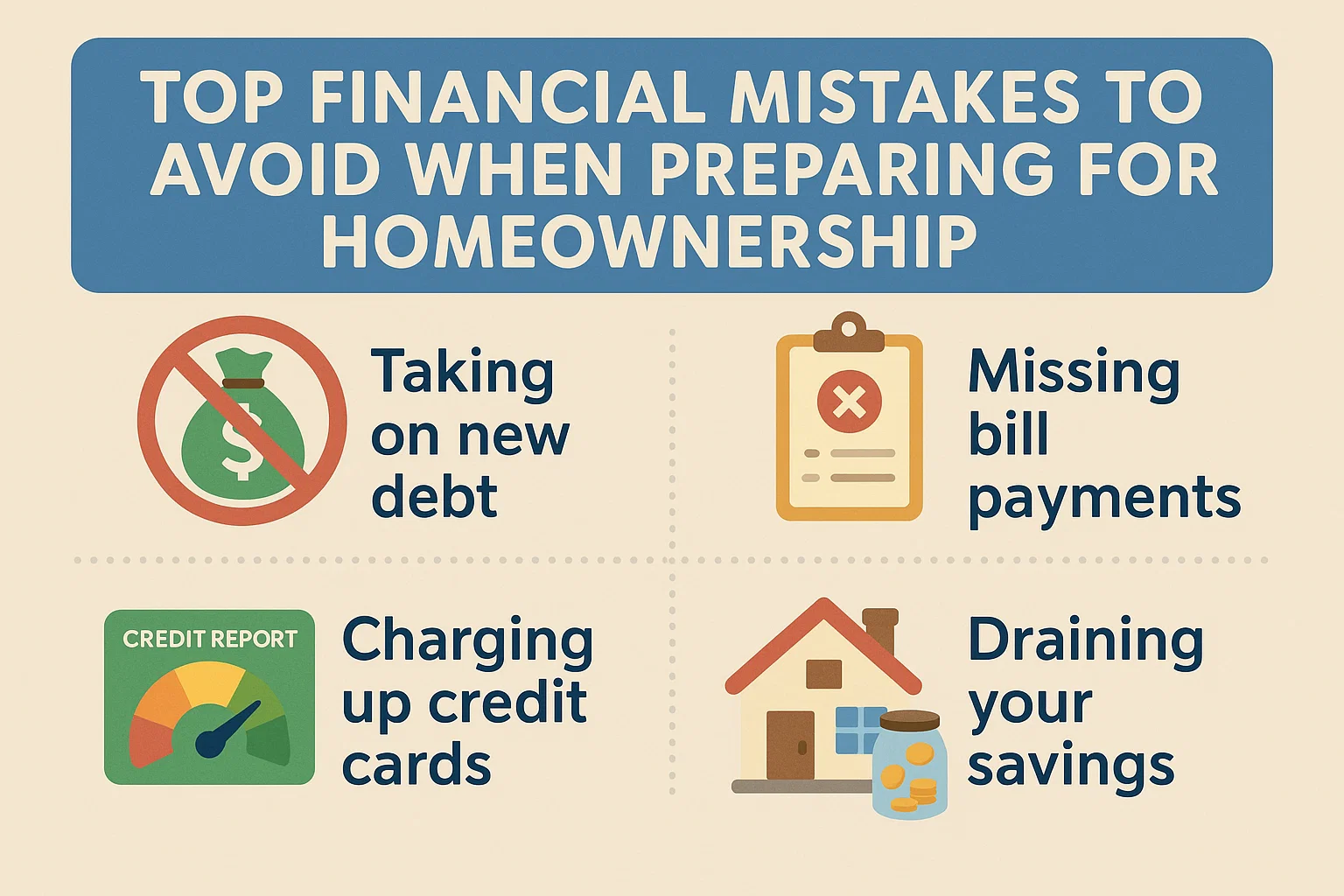Top Financial Mistakes to Avoid When Preparing for Homeownership

Top Financial Mistakes to Avoid When Preparing for Homeownership
Buying a home is an exciting milestone filled with visions of new beginnings—decorating your space, hosting gatherings, or enjoying the freedom of ownership. However, this phase also demands careful financial planning. Every monetary decision you make before purchasing a home can influence your ability to secure a loan and afford your future property. From spending habits to income changes, even minor missteps can affect your creditworthiness or lender approval. Below are three critical mistakes to avoid as you prepare for this major investment.
-
Changing Your Job
Lenders prioritize stable income and employment history to gauge your ability to repay a mortgage. For conventional loans, they typically review two years of job history. While switching roles within the same field (e.g., moving between school districts as a teacher) may raise fewer concerns, abrupt career changes (e.g., transitioning from teaching to a different industry) can signal instability. Avoid altering your employment status unless absolutely necessary.
-
Taking on New Debt
Major purchases like a car loan before buying a home can harm your debt-to-income ratio (DTI). Lenders use DTI to determine how much of your monthly income goes toward existing debts, which directly impacts the mortgage amount they approve. Most conventional loans require a DTI below 45%. Adding new debt reduces your borrowing capacity and may limit your home options.
-
Neglecting Your Credit Score
Small oversights, like late payments or applying for new credit cards, can lower your credit score. Each application triggers a hard inquiry, which temporarily dings your rating. Keep bills paid on time, avoid new credit lines, and monitor your credit report to ensure it reflects your strongest financial standing.
Preparation is key to securing your dream home. By maintaining steady employment, avoiding unnecessary debt, and protecting your credit score, you’ll position yourself as a reliable borrower. Always consider consulting a financial advisor to navigate this process confidently and avoid costly errors.




